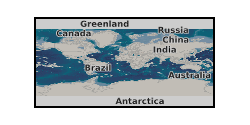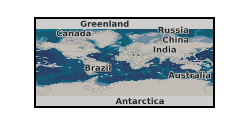Robert Gordon University
Type of resources
Topics
Keywords
Contact for the resource
Provided by
Update frequencies
-

The geological storage of carbon dioxide (CO2) offers notable potential, as part of larger carbon dioxide capture and storage (CCS) processes, to be a significant climate change mitigation technology. This paper challenges the argument often put forward that, due to the greater distances from centres of population, it will be ‘easier’ to garner public and stakeholder support for offshore CO2 storage than onshore. Based on the results of research interviews carried out with stakeholders and informed publics in Scotland, challenges for public and stakeholder acceptance of sub-seabed CO2 storage that may require further policy attention are identified. Whilst existing policy for sub-seabed CO2 storage is cognisant of the need for societal engagement, it may be the case that these regulations may need further reinforcement to ensure future developments are able to address social acceptability issues as fully as possible. The value of taking into account social as well as physical characteristics at the site selection phase, the need for mechanisms to take seriously stakeholder conceptions of uncertainty, and the importance of extending social engagement beyond risk communication are discussed. This is a publication in Marine Policy, Lesley Mabon et. al. doi:10.1016/j.marpol.2013.11.011.
-

This paper explores the social dimensions of an experimental release of carbon dioxide (CO2) carried out in Ardmucknish Bay, Argyll, United Kingdom. The experiment, which aimed to understand detectability and potential effects on the marine environment should there be any leakage from a CO2 storage site, provided a rare opportunity to study the social aspects of a carbon dioxide capture and storage-related event taking place in a lived-in environment. Qualitative research was carried out in the form of observation at public information events about the release, in-depth interviews with key project staff and local stakeholders/community members, and a review of online media coverage of the experiment. Focusing mainly on the observation and interview data, we discuss three key findings: the role of experience and analogues in learning about unfamiliar concepts like CO2 storage; the challenge of addressing questions of uncertainty in public engagement; and the issue of when to commence engagement and how to frame the discussion. We conclude that whilst there are clearly slippages between a small-scale experiment and full-scale CCS, the social research carried out for this project demonstrates that issues of public and stakeholder perception are as relevant for offshore CO2 storage as they are for onshore. Published in QICS Special Issue - International Journal of Greenhouse Gas Control, Leslie Mabon et. al. Doi:10.1016/j.ijggc.2014.10.022
 NERC Data Catalogue Service
NERC Data Catalogue Service